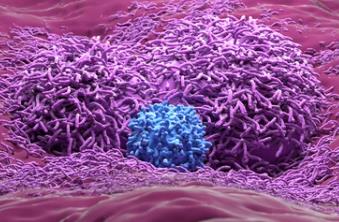Recently, a team led by Dong Ling from Zhongshan Hospital affiliated with Fudan University and Zhang Si from the School of Basic Medicine at Fudan University jointly published a new study in the Journal for ImmunoTherapy of Cancer, revealing the presence of a class of highly expressed platelet-activating factor acetylhydrolase (PLA2G7) and highly immunosuppressive TAMs in the microenvironment of hepatocellular carcinoma (HCC). Inhibiting PLA2G7 can improve the immune microenvironment and…
PD-1
New Mechanism by Which Cancer Cells Inhibit Anti-tumor Immune Responses Revealed
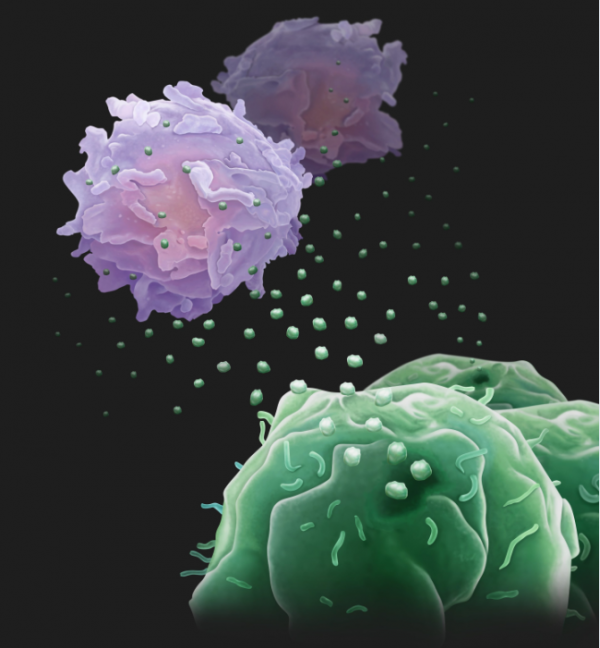
Cancer cells are not just a group of cells that are out of control; for their own survival, they actively participate in the struggle with the immune system. Being able to evade detection by the immune system is a feature of cancer. In a new study, researchers from the University of Pennsylvania found that cancer cells release biological “unmanned aerial vehicles” – small vesicles called exosomes that circulate in the…
JEM: Prevent Exhaustion in Immune Cells Boosts Immunotherapy
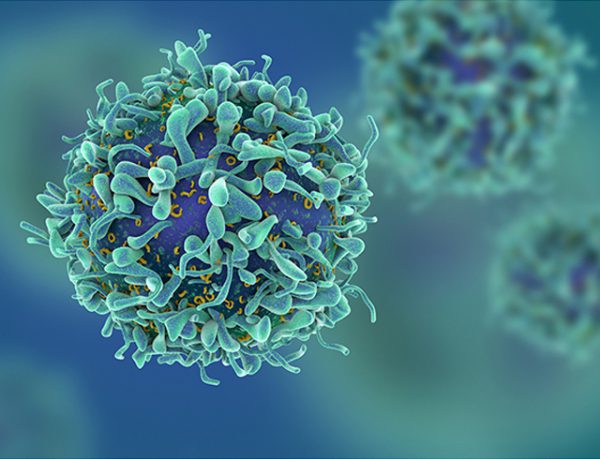
If you are an immune cell ready to fight cancer, you’d better eat some breakfast. Because the tumor microenvironment is a harsh place, and tumor cells are always ready to make you exhausted. Improvement of highly specific immune fighter in vivo: The ability of T cells to attack tumors has achieved clinically significant advances in tumor immunotherapy. However, this method is only effective in 10-30% of patients. One reason…
Interpretation of the Recent PD-1 Research Progress (Part II)
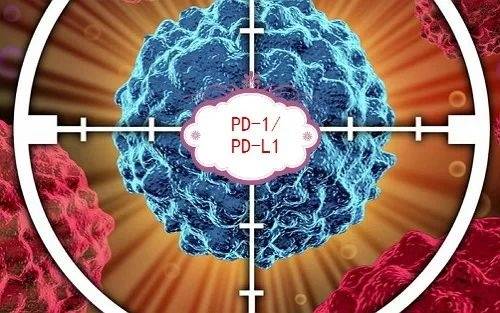
Continued 6. Nature’s New Discovery: Another Unidentified Anti-cancer Approach of PD-1 / PD-L1 Antibodies doi: 10.1038/nature22396. On May 17, Nature published an online article titled “PD-1 expression by tumor-associated macrophages inhibits phagocytosis and tumor immunity”, revealing the immune checkpoint inhibitors represented by the PD-1 / PD-L1 antibody can fight cancer in a completely different way. Dr. Irving Weissman, a professor of pathology and developmental biology at Stanford…
Interpretation of the Recent PD-1 Research Progress
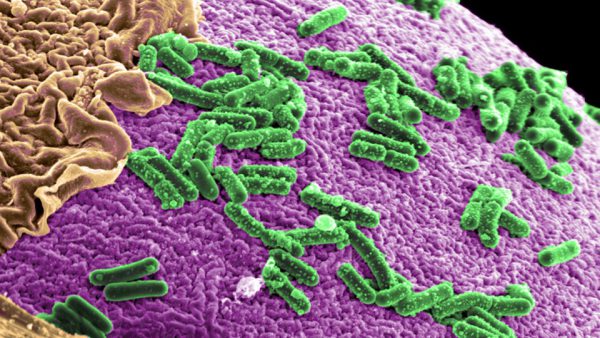
PD-1 (programmed cell death protein 1), the programmed death receptor 1, is an important immunosuppressive molecule. Immunomodulation which targets PD-1 is of great importance to anti-tumor, anti-infective, anti-autoimmune diseases, and organ transplant survival. In recent years, scientists have made a number of achievements in the field of PD-1 research. We will share the relevant research here. 1.Science: Scientists confirm that intestinal microbes affect PD-1 / L1 antibody treatment for…
